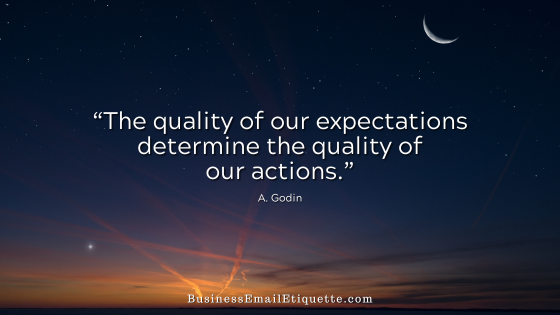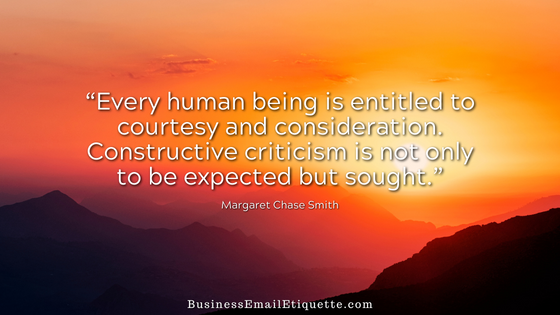Tone is Everything in Business Email

After the obvious importance of spellchecking, proper grammar, and sentence structure, next comes tone. Unfortunately, you can have all those variables correct and still underestimate the importance of setting the appropriate tone in your business email communications.
Let’s define tone:
tone [tohn]
noun, verb, toned, ton-ing.
-noun
- any sound considered with reference to its quality, pitch, strength, source, etc.: shrill tones.
- quality or character of sound.
- vocal sound; the sound made by vibrating muscular bands in the larynx.
- a particular quality, way of sounding, modulation, or intonation of the voice as expressive of some meaning, feeling, spirit, etc.: a tone of command.
- an accent peculiar to a person, people, locality, etc., or a characteristic mode of sounding words in speech.
- stress of voice on a syllable of a word.
Did you notice something? The definition of tone pretty much has to do with the tone of one’s voice. “Sounding words in speech.”
How does that relate to your business email? Being cognizant that the other side does not have your voice (or eye contact or your body language, etc.) to help them determine your tone.
You are responsible for ensuring that the proper and desired tone is relayed in your email communications through the words you choose and how you use them.
Tone Takes Effort and Forethought
This will require your time, diligence, and willingness to improve your vocabulary so you can use the English language correctly to its full potential and benefit.
If you talk to anyone who writes for a living, they would be the first to admit they are constantly honing their skills to be a better writer. Email is a form of communication with the written word, after all, so the same efforts should apply.
Sharing an Experience
Sharing my experiences can help relay how sometimes, things you don’t consider can have unexpected ramifications. What prompted this post today was a recent communication experience I had with a potential client.
In the initial email, their tone was rude, demanding, and downright condescending. This particular email had me wondering if this individual was purposefully trying to get me to react in a less-than-professional manner.
I read, reread, and even waited to reread it later to see if my perception changed. I can’t express enough how many times walking away and clearing your head can change how you perceive certain communication styles. But, unfortunately, this was not one of those cases.
My perception of the “tone” in this email, which most would agree had condescending and demanding comments, did not change. This particular email stated the work process, what I could charge, and how they would pay me. That is, if I wanted them to hire me.
Never miscalculate that when you are emailing potential partners about doing business together, they are probably determining if they want to do business with you as well.
No Stooping
As I always do when I reply to emails of this type, I was pleasant, professional, and factual. I provided my “Modus Operandi,” which details how I do business, stating my processes and fees.
In my response, I noted that if my methods or pricing were unsatisfactory, it would be best to find another consultant more in line with how they wanted to proceed.
I wasn’t rude or curt. Nor was I demanding or demeaning that they do things my way. I am confident in how I do business and let them know the details involved. They could choose to be part of that or not.
Their response? “I didn’t mean it that way — I want to do business with you — why do you think I contacted you!?”
In my world, I would never think to contact anyone and tell them how they will do business with me or what they are allowed to charge. But, instead, this individual chose the words they used and decided how to use them.
Wow, right? Even with that, my reply still reflected professionalism and didn’t react to their snarky or demanding tone.
Be Self-Aware
If you type it, you had better mean it. Think about it. Who types things they don’t mean? When you include multiple instances of punctuation that were unnecessary to make your point clear, can you honestly state you “didn’t mean it that way?”
Email is now a powerful tool for building relationships. You may have only one chance to impress a potential partner or smooth over a mishap with a current client. Therefore, every email needs to reflect professionalism and literacy that encourages those who don’t know you to trust you with their business.
Constantly work on your vocabulary and communication skills so you don’t squander that one-time opportunity. Learn to write well.
One last thing… Take your time and read your emails out loud before clicking Send. You may be surprised by how often you’ll make modifications.







